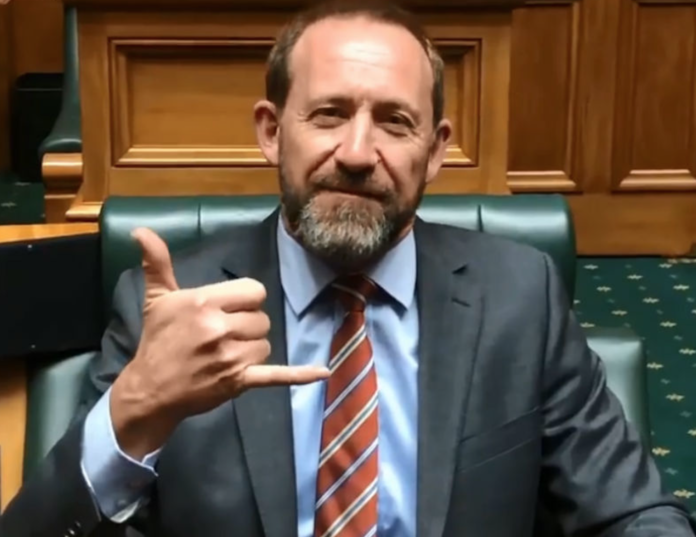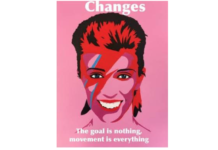There are few things more self-evident that when a government focusses on major health structural change. Pressing issues in the health system are neglected by the system’s political and bureaucratic leadership.
This is self-evident in several areas, most noticeably the woeful neglect by the Labour government of the severe health professional shortages in New Zealand’s 20 district health boards (DHBs) including the public hospitals they are responsible for.
This crisis was inherited from the previous National government but, four years later, these severe shortages remain largely unaddressed if not through compounding got worse.
Which government is more responsible for this crisis – the government in charge when it happened or the government that condemned it when in opposition but neglected it once in power? I can no longer differentiate.
Kidney transplants
Now Stuff and Press journalist Cate Broughton has exposed another example of health system leadership neglect – kidney transplants – in a recently published article: https://www.stuff.co.nz/national/health/127059340/stalling-numbers-of-kidney-donations-would-cost-millions-of-dollars-in-dialysis-research-finds.
She cites research by the New Zealand Institute of Economic Research (NZIER) showing that the failure to promote kidney donations is costing New Zealand millions of dollars in dialysis treatment.
Kidney failure (also known as renal failure) is a medical condition in which the kidneys lose the ability to remove waste and balance fluids. In the absence of a transplant they are treated by dialysis machines. Medical specialists trained in this area are usually called renal physicians. Consistent with other debilitating chronic illnesses renal failure is steadily growing within the population.
Kidney transplants are only provided in three DHBs (Auckland, Capital & Coast and Canterbury). Nine of the 20 DHBs have no dialysis services. The absence of a national renal service or network is a glaring omission in New Zealand’s public health system.
Access to kidney transplants in New Zealand has become more difficult in recent years with the transplantation rate low compared with other countries while transplant demand has increased. Looking ahead the signs are that this will get worse.
According to NZIER the number of New Zealanders with late-stage kidney disease and unable to access transplantation was expected to increase by 30% from about 3,700 in 2020 to about 5,700 by 2031-32.
Instead these patients will be condemned to dialysis treatment machines which can provide minimum kidney function by driving waste from the body.
Short-sighted fiscal irresponsibility
NZIER’s estimated dialysis treatment cost for government would increase from $425.5 million to $655.5 million each year. This is based on a projected annual cost of $115,000 per patient. In contrast, transplants cost about $75,000 per patients and on average giving them an extra 20 years of life.
In 2019 there were around 221 kidney transplants. NZIER advised that increasing this number by 50 each year would save the health system $70 million over the next six years. The financial and health (including quality of life) benefits are irrefutable.
Kidney Health New Zealand general manager Michael Campbell is reported as saying that these findings “…finally expose the disappointing track record of successive governments in failing to adopt basic and easily-achievable measures to increase our transplant rates”. He accuses Jacinda Ardern’s governments (Labour-NZ First and Labour alone) as being “asleep at the wheel”.
The reason for his harsh assessment is a four-year delay in rolling out its deceased organ donation strategy which was signed off in 2017. Campbell notes that many countries successfully increased transplant donation rates through funding of promotion and education initiatives.
While this delay continues national eligibility criteria for transplant waiting lists can only manage demand rather than determine who is medically suitable. This is unacceptable clinically for a government claiming to support wellbeing. It is also fiscally irresponsible.
National renal service or network
Kidney Health New Zealand advocates a national renal service (there are already national services or networks for some treatments that can’t be consistently provided across many DHBs). DHBs are not the problem; failings in national leadership are.
Unsurprisingly Kidney Health New Zealand is calling for a national renal service. This is endorsed by MidCentral DHB renal physician Dr Curtis Walker (also Chair of the Medical Council) who also notes the decades of disparity for Māori and Pasifika patients needing kidney transplants.
Despite making up 60% of all dialysis treatment patients, over the last year Māori and Pasifika received less than a quarter of transplants of other ethnic groups.
A very fixable problem
It would not take much to turnaround this worsening predicament for the growing number of patients suffering renal failure. It is fixable. There are relatively low cost solutions. What is required is leadership from government and the health system.
First, it would require a good promotional and educational campaign on the importance and benefits of significantly increasing the number of kidney organ donors (the significant increase is more proportions than numbers).
This was central to the strategy adopted by government back in 2017 but then side-lined. It is doable. There is hardly a shortage of communications staff working in the health system or of external public relations support. They would have access to plenty of high quality clinical and related expertise and experience within the health system, beginning with those working in renal treatment and transplants.
Second, ensuring a nationally coordinated service or network is not rocket science. We already have experience of this in, for example, cancer treatment and cardiology. The expertise and experience required to design something workable and sustainable resides within the health system.
The obstacle
The obstacle is political and bureaucratic leadership at a central government level. Abolishing DHBs, which are responsible for the provision and funding of health services for their geographically defined populations, by next July has distracted this leadership from doing its job.
Destabilising through restructuring is the major cause of this four year and growing delay. Given the relatively uncomplicated nature of what is required to fix the problem of insufficient kidney transplant donors this can’t be blamed on the Covid-19 pandemic which commenced less than two years ago.
Morals of the story
Most stories have at least one moral. The kidney transplant neglect has at least three. One is that structural change does not improve the effectiveness of the health system. Sustainable system improvement requires a strong engagement culture which has been absent in this issue.
The second is that major restructuring (such as abolishing and replacing DHBs responsible for the provision and funding of health services from community to hospital) distracts and destabilises the health system from addressing otherwise solvable challenges.
Finally, what makes good clinical sense also invariably makes good financial sense. Conversely, what does not make good clinical sense makes bad financial sense. This is not rocket science but the political and bureaucratic national leadership of Aotearoa’s health system simply does not get it – yet!
Ian Powell was Executive Director of the Association of Salaried Medical Specialists, the professional union representing senior doctors and dentists in New Zealand, for over 30 years, until December 2019. He is now a health systems, labour market, and political commentator living in the small river estuary community of Otaihanga (the place by the tide). First published at Otaihanga Second Opinion





expect more of this as the PRO-COVID crowd displace other patients awaiting much needed treatments, when they inevitably clog up our under prepared health system with their ‘freedumb’
The kidney transplant campaign stalled in 2017. No one was talking about merging or abolishing DHBs until 2019.
I suspect the stall had much more to do with differing cultural beliefs about body parts and death.
No. The initial distraction was to become inert on important systems issues like this because of the precursor Heather Simpson review on the health and disability system which started in 2018.
Well, why not create a free market, pay good prices for suprlus organs that may or may not needed over the life time of someone, and surely enough there could be enough people with debt, or living in poverty that may consider selling one of their body parts. heck we already monetize human milk, eggs, semen, surrogacy, why not do the same to organs we don’t really need, a kidney, an eye, some skin,? – and so on and so forth, and we could make these career choices and people could be compelled by Winz into looking into body parts donation to make a living.
Oh i can see some good choices coming up. Dear you are a 25 year old male in good health and unemployed, have you looked at donating a kidney and eye and a bit of plasma, that could make you 30.000 before tax. Oh no, these are jobs and if you are unemployed you must apply for them, lest we stand you down. Oh yeah, can so see that.
Or as china does make prisoners donate through fair means or foul.
Yeah I can see it coming a mile off.
They also need to couple up NZ immigration policy with NZ’s health spend such as 75,000 parent visas between 1997 – 2015 (much higher probably with a massive influxes of people 2015 – 2020 and then the elderly piggy backing with marriages on the original parent entry. https://www.rnz.co.nz/news/national/376220/10k-11-days-and-one-failed-deportation
This combined with the high numbers of chefs, retail and restaurant manages (top 3 skills getting NZ’s ‘skilled’ migrant category visas) in 2015. https://croakingcassandra.com/2017/06/29/who-has-been-getting-residence-visas/ is a bit of a give away.
Encouraging takeaways and liquor shop workers.owners seems to be part of NZ’s growing diabetes (kidney failure) and obesity problem, that is a huge burden on the health system.
It seems very cruel that the NZ government policies seem to be encouraging poorer health and high needs resourcing, by their immigration policies, while doing nothing to provide any relief to it’s existing victims and the workers in the hospitals.
As the article says.
“The large numbers of aged care nurses (and there are many more, and aged care workers, in the work visa numbers) stands in striking contrast to the recent pay equity settlement. In that settlement, the government concluded that employees in the sector were so badly paid that a direct government intervention was needed to drive up the wages. I don’t usually focus much on the arguments about whether immigration lowers wages – my focus is more on overall economic performance – and I’m not (at all) a fan of “pay equity” interventions, but it is hard to look at these two things and not conclude that there is a certain incoherence about policy. Had fewer aged care workers from abroad been granted visas, it seems likely that market wages in that sector would have been rather higher.”
In addition not much thought about the likely health needs of people coming to NZ from very high pollution countries with some of the world’s worst air and water quality and high smoking levels, where there are likely to be significant health problems for those people around the corner, such as cancer and other debilitating (and expensive) long term illnesses.
Maybe there needs to be a user pays fee put on every NZ visa that pays for all the public problems resulting from such unusual immigration statistics on ‘skilled’ category and thought behind why our policies seem to be helping more people settle in NZ that will need long term care and public services in the future.
Instead the proposed ‘redundancy insurance’ might be why they suddenly realise that so many people in NZ, have terrible health and will need long term care, (using redundancy as a distraction) but the bigger problem is retaining skilled people to keep NZ going as a country. Nobody seems very attracted to stay in NZ on our wages meaning there is constant turn over of skilled staff and pretence and Ponzi of what is considered a high skill in NZ.
More taxes, less pay, not enough high level skills and experience, our system full of newbies and poorly qualified people pretending that it is working, along with never ending work load of high needs patients who are priorities, are going to suddenly find all the expert doctors and health care workers being retained LONG TERM in NZ.
Problem is getting worse and nobody seems interested in solving it with all the woke, Lester Levy’s and never, never thinking.
Morals of the story
Most stories have at least one moral. The kidney transplant neglect has at least three. One is that structural change does not improve the effectiveness of the health system. Sustainable system improvement requires a strong engagement culture which has been absent in this issue.
The second is that major restructuring (such as abolishing and replacing DHBs responsible for the provision and funding of health services from community to hospital) distracts and destabilises the health system from addressing otherwise solvable challenges.
Finally, what makes good clinical sense also invariably makes good financial sense. Conversely, what does not make good clinical sense makes bad financial sense. This is not rocket science but the political and bureaucratic national leadership of Aotearoa’s health system simply does not get it – yet!
THIS SUMS UP EVERYTHING THAT IS WRONG WITH OUR HEALTH SYSTEM.
Also why our meds funding doesn’t even meet 3rd world standards.
The total abolition of all 20 DHB’s is nothing more than the WGTN bureaucrats saving their own asses after the CDHB board showed them up and the bullshit capital charges bullshit by backing their patients and staff and refusing to bow down before the WGTN bureaucrats.
I HAVE NO faith whatsoever in the proposed health model.
professional managers managing decline is the problem
now organising supplies and purchases does need an expert but not when their ponderings effect patient outcomes as they do.
Comments are closed.